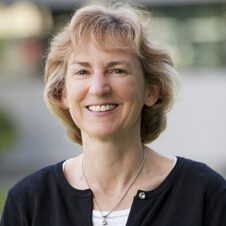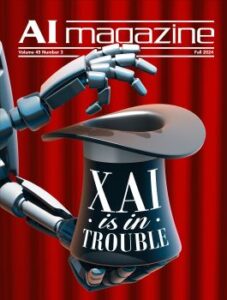Latest from AI Magazine
|
|
Fall 2024
|
Recent Posts
AAAI 2019 Fall Symposium Report on Cognitive Systems for Anticipatory Thinking (COGSAT)
by Adam Amos-Binks
Anticipatory thinking (AT) — the deliberate and divergent consideration for relevant possible futures– is a key cognitive process in a variety of key societal contexts. The Cognitive Systems for Anticipatory Thinking brought together a multi-disciplinary group who’s methods can help augment human capacity for AT. Several key contexts emerged including autonomous vehicles, geo-political issues, and intelligence analysis. Key next steps include defining benchmark AT problems and competencies as well as how to evaluate them.
AAAI 2019 Fall Symposium Report on AI for Social Good
by Muhammad Aurangzeb Ahmad, Hemant Purohit, Oshani Seneviratne
This symposium was centered around the broad vision of how AI could be used for social good through supporting solutions toward the United Nations’ sustainable development goals that touch every aspect of human, social, and economic development. The symposium identified the critical need for responsible AI solutions for these goals, which demand holistic think- ing on optimizing the trade-off between automation benefits and their potential side-effects.
AAAI 2019 Fall Symposium Report on Teaching AI in K-12
by David Touretzky, Chrisina Gardner-McCune
There has recently been an explosion of activity in K-12 AI education. As the AI4K12 Initiative (ai4k12.org) works to develop national guidelines for teaching AI in US schools, similar efforts have begun in Canada, the U.K., China, and elsewhere. New curricula are being piloted, new tools developed, and new AI electives launched in middle schools and high schools. There have been national and international workshops, and ongoing discussions online about teaching AI in K-12. This symposium brought together the growing community of AI educators, researchers, curriculum designers, and tool developers to discuss the current state of AI education in K-12.
AAAI 2019 Fall Symposium Report on Work and AI
By Kevin Crowston
The Work and AI AAAI symposium was held in Arlington Virginia from 7–9 November 2019. The goal of this symposium was to discuss and plan how AI researchers will contribute to research on human work with artificial intelligence.
AAAI 2019 Fall Symposium Report on AI in Government and Public Sector Applications
By Frank Stein
The AI in Government and Public Sector Applications Symposium was held in Arlington, VA on Nov 7-8, 2019. The goal was to present the status, opportunities and challenges in using AI in government/public sector projects, and to expand the dialog within the community on building, accepting, and using these solutions.
Ask-Me-Anything
AI experts answer your questions! See all of our AMAs. Your questions will be submitted to these guests and a video will be recorded with their answers and posted on the Interactive AI Magazine and in the weekly AI Alert.
Ask your questions to Dr. Myers here!
 For our fifth AMA, we have Karen Myers, Ph.D. Dr. Myers is the Lab Director for SRI International’s Artificial Intelligence Center.
For our fifth AMA, we have Karen Myers, Ph.D. Dr. Myers is the Lab Director for SRI International’s Artificial Intelligence Center.
Dr. Myers’ research focuses on intelligent systems that facilitate man-machine collaboration. Her expertise includes autonomy, multi-agent systems, automated planning and scheduling, and intelligent assistants. She has led the development of several AI technologies that have been successfully transitioned into operational use in areas that span collaboration tools, task management, and end-user automation.
Dr. Myers has served on the Executive Council for the Association for the Advancement of Artificial Intelligence (AAAI) and the International Conference on Automated Planning and Scheduling (ICAPS). She was on the editorial boards for Artificial Intelligence and the Journal for AI Research and the advisory board for ACM Transactions on Intelligent Systems and Technology. She is the conference chair for the Innovative Applications of AI conference for 2019. She was elected SRI Fellow in 2016.
Myers has a Ph.D. in computer science from Stanford University, a B.Sc. in mathematics and computer science from the University of Toronto, and a degree in piano performance from the Royal Conservatory of Music.
